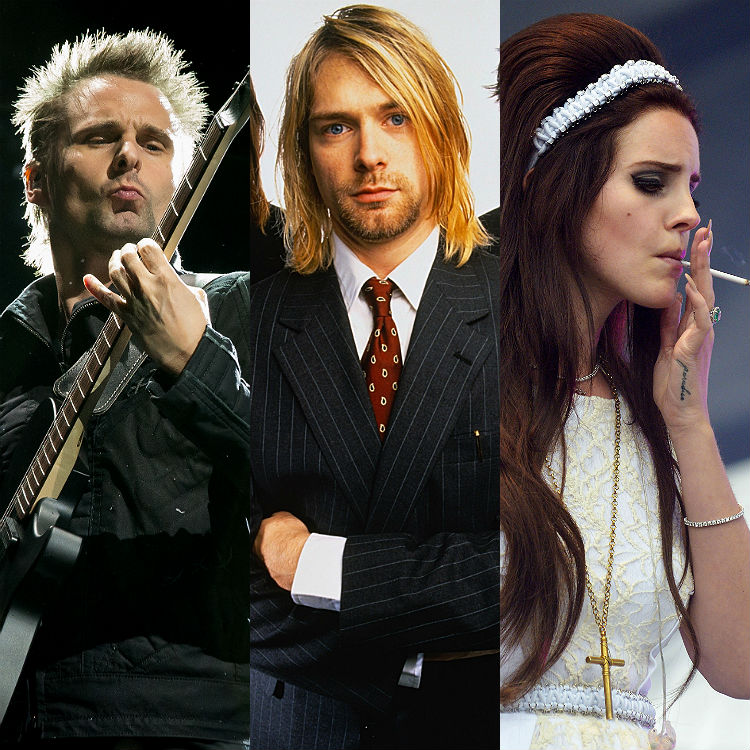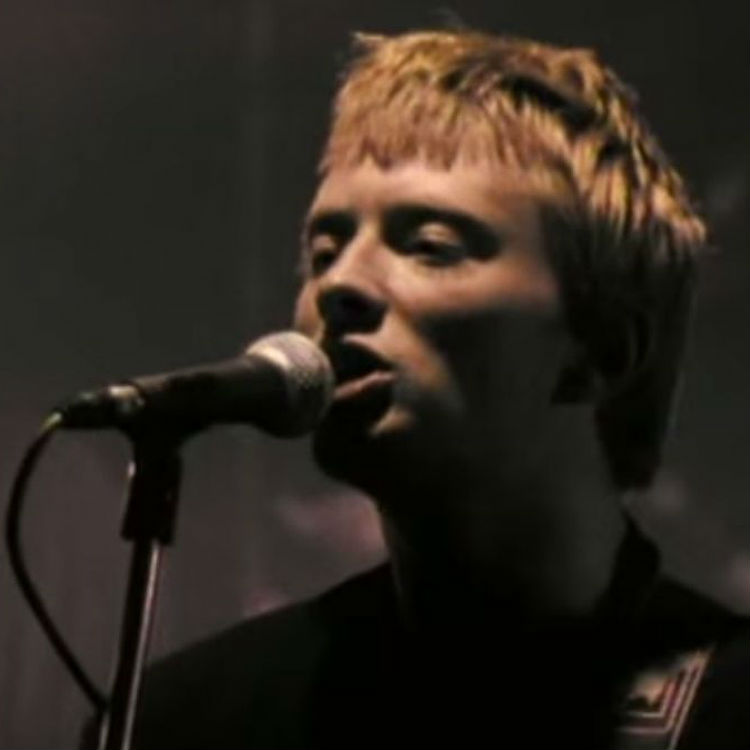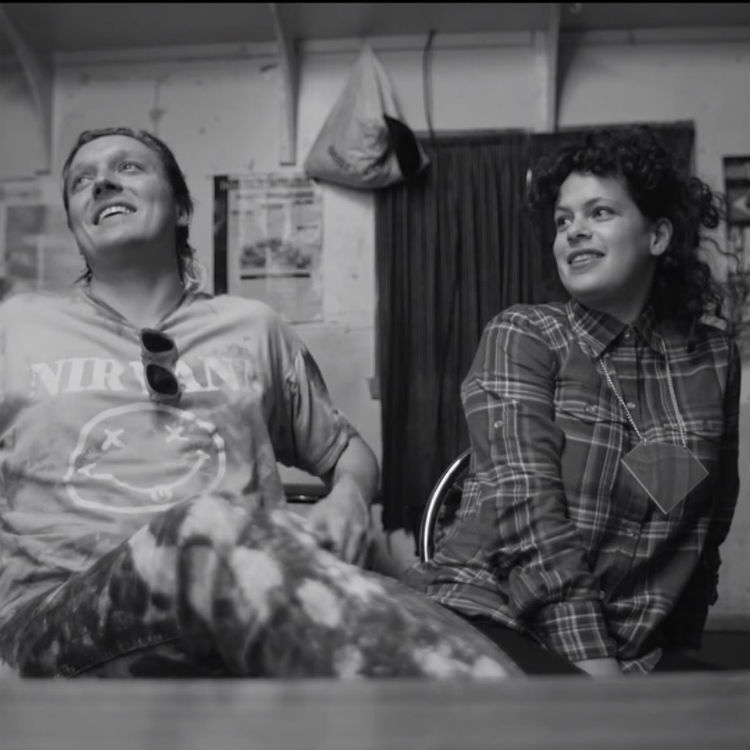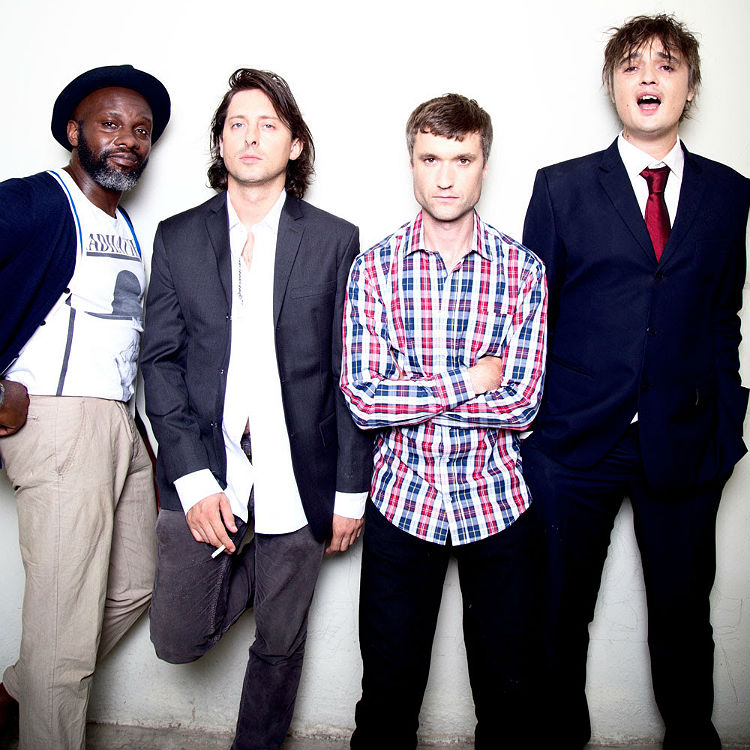 Photo:
Photo:
Patrick Wolf has long been held up as an example of the best that British alternative music has to offer. His fifth studio outing, Lupercalia, is out at the end of the month and looks set to be one of the records of the year.
Lady Gaga already counts herself a fan and, with a new, more accessible sound, indebted to motown and disco but entirely his own, Wolf maybe about to make the major leap into the popular conscience he’s been threatening since 2006’s acclaimed ‘The Magic Position.’ Recently, Gigwise caught up with Patrick to discuss love, loss and experimentation.
Your new album, ‘Lupercalia’, was originally going to be the called ‘The Conqueror’, forming one half of a double album alongside 2009’s ‘The Bachelor’. What informed your decision to scrap that plan and make an entirely separate record?
Patrick: There were a lot of reasons for that. I think that by the end of touring ‘The Bachelor’ I felt I’d already explored a lot of what was going to be on ‘The Conqueror’ in a live setting. When I came to thinking about what to do next I had 5 or 7 quite claustrophobic, quite aggressive songs my on hands. I felt to use those would’ve been to make a sequel rather than a counterpart, so I decided it was time to move on. I always like to do something new. I can let go those tracks go in other ways. Maybe they’ll be b-sides or an E.P. I still haven’t figured out what the bonus material to go with this album will be.
What I really wanted was to express something positive. The idea for ‘The Conqueror’ was that love conquerors all. I was worried people wouldn’t read into that. I’m already known as somebody quite bombastic, I didn’t want people to think the title was referring to me.
You’ve talked about splitting up those albums and their separate ideas, but you’re also known for bringing contrary things together, for instance, in any given one of yours songs your as likely to use a lute as a 16bit Atari loop…
Patrick: For me it’s about extremes, different ends of the spectrum. I was listening to the album last night, trying to bond with it again after all the mastering and scientific processes that go into finishing off a record. I realised what I wanted to get across was a range of feelings. Even though there’s a lot of happiness, there’s melancholy mixed in with it. Those are the extremes I’m using, on this album at least.
Even amongst the most upbeat songs there’s a variance between those which deal with the joy of being in love and those that deal with the joy you can derive from being out of love, the single ‘Time of My Life’, for instance, the key line being “ [I’m] happy without you.”
Patrick: Yeah, ‘Time of My Life’, ‘The Days’ ‘and Slow Motion’ are all like that. The song ‘William’ is melancholy and ‘Together’ has a certain sadness to it as well. It’s not some anodyne, optimistic record. You can’t have light without darkness. It’s like what you mentioned about using different sounds. I always want to throw something futuristic into the melting pot, in the production especially. Even with the fairly traditional sounds like recording the orchestra, for example. We didn’t do it conventionally. We didn’t use room mikes or try and capture the ambience of an ensemble, we recorded each instrument separately and then split it all up. You can experiment even when you’re dealing with timeless themes.
Returning to this theme of splits and opposites again, I notice that while your previous albums have often dealt with the fantastical, taking inspiration from fairytales and other magical influences, the landscape of this record is much more domestic. You sing about “crossing the threshold” and protecting “the roof over your head”…
Patrick: Wow, you’ve really been listening! That’s nice because it’s not always the case. Your right, it’s about having roots. It’s in a lot of the lyrics, “the native has returned”, for instance. I was thinking of “The return of the Native” by Thomas Hardy which is one of my favourite books. It’s about the feeling of being connected to a place.
I was actually really close to calling the album ‘The Native’. I was born in St Thomas’s Hospital and, for three or four years now, I’ve lived very close to my birthplace. It’s helped me work out my place in the world. Ever since ‘Lycanthropy’ I’ve been asking “where is home?” On ‘Wind In the Wires’ it’s like I’m totally homeless and on ‘The Magic Position’ I was lost in a sort of daze of….
Magic?
Patrick: Yeah! ‘The Bachelor’ is the depression after the party. But this record is about having solid, firm roots.
You mentioned a narrative running through the albums. I know that, obviously, in recording any album there’s a big time lag between writing and release. For example the song ‘Get Lost’ was five years old when it came out. Is the Patrick Wolf of ‘Lupercalia’ still the Patrick Wolf sat here now?
Patrick: Yes it is. With a lot of my albums I’ve tried to runaway from things. As you’ve mentioned there’s been a fantastical element, which was really escapism on my part. With this album I’m trying to stabilise things, I’m happy, in love and don’t want things to change. I don’t leave this album on an escapist note.
This record certainly seems more personal. In the past you’ve worked from different character perspectives. A fan favourite from your early work, “Tristan”, see’s you singing in the role of Tristam of Lyonesse. There’s none of that on the new album…
Patrick: But even ‘Tristan’ is about me, it’s just told through third person. On this album I didn’t want to speak through third person perspectives. This certain love that’s come into my life made me want to take all my masks off, drop the metaphors and feel comfortable in my own skin.
Ahh, talking of skin, the album’s title, ‘Lupercalia’, is taken from a pre-Roman fertility festival that, appropriately enough, took place on Wolf Mountain in Arcadia. It involved running around naked, purging yourself and your lovers with goat hide whips. Is there an element of purging past experiences as well as celebrating new love in that choice of title?
Patrick: To be honest I was more looking for a word associated with love that wasn’t just a cliché, that wasn’t tainted with other modern associations. I also wanted a word that was about paradise and that reflected the bravery involved in love. The album and the festival are both about bringing love and fertility into a city. It’s appropriate because this is a celebratory album, and as you pointed out it’s got a lot of urban and domestic settings.
Indeed, ‘The City’ is the lead single…
Patrick: Yeah, it was an easy choice. It just seemed to some up those ideas we’ve been talking about.
This is your most accessible album and, as we’ve discussed the themes are, whilst very personal, also fairly universal. Do you expect to reach a larger audience with this record?
Patrick: Well, I thought I was doing something really accessible with ‘The Magic Position’ but looking back I suppose it was pretty experimental. I never have any perspective on things like that. I think this is easier to digest, and the subject matter speaks to more people. It’s a mystery to me what happens after its done, in terms of whose hands and whose ears it ends up in. I can’t predict the future but I’m in a really great place right now. I feel I know how to communicate myself a lot better these days.
You learnt to play the viola at a young age and have spent time playing in orchestras and alongside groups such as Arcade Fire amongst others. Being a solo artist do you find it helps to work with others occasionally?
Patrick: It was very useful last year when I started playing for Patti Smith. It helps you focus on the music rather than the more performative aspects of things. It’s like when I used to play in orchestras, you kind of dissolve in to the totality of the sound. It helps spark my imagination for all the stuff that goes on beyond the singing. I worked with Fiona Bryce on this record for the orchestral arrangements on the album. I was being very ambitious in what I wanted and I would have had to go back in time ten years to when I was studying music at Trinity to be able to do it on my own. I found a good collaborator there.
You’ve done a lot of collaborations in the past and it was rumoured this album would feature Groove Armada and the actress Tilda Swinton amongst others, which it doesn’t. What happened there?
Patrick: What was amazing about signing to Mercury was that they were really uninterested in my collaborations. They preferred me to be autonomous, to stick to my own vision.
The earlier records were me alone with my music. ‘The Bachelor’ was me starting to get bored of myself. ‘The Conqueror’ was going to have collaborations with dance producers and all the rest of it, but I couldn’t really here myself in it. The label were great in pointing out that it just wasn’t me, that I had a whole body of my own work that I should’ve had more confidence in. It was like they reigned me in, I went into my hermits cave and this album came out. That’s why there are no collaborations on it, no duets even.
The last album was released through fans buying shares in it. It sounds like your glad to be back on a label…
Patrick: It’s really good to have a sounding board and a team of people you can trust.
In the past you’ve spoken out against the dominance of guitars over other instruments in popular music, is that still something that annoys you? It seems today that we may be on the way towards synth hegemony instead…
Patrick: Well I got over the guitar thing because of people like Joni Mitchell, The Pixies and The Breeders. There are lots of variants of guitar, after all. Slide-guitar, for example, is gorgeous. There’s no instrument I want to banish, it’s just certain genres of music don’t make the effort the get the most out of their instruments.
Although, for young bands with little support, it’s hard to turn up at a venue with anything that deviates too far from a standard indie-rock line up because they just don’t know how to sound check you…
Patrick: You’re totally right, it’s very true. I realised that early on. I knew almost straight away that I was always going to need my own sound engineer. You can’t just walk into a small venue and expect the sound guy there to know how to mike up a dulcimer or get the best sound out of an organ you’ve found at a car-boot sale. You need your own sound people…and a good lawyer.
You often get billed as an experimental artist. The writer B.S. Johnson hated the term ‘experimental’ because it implies something that isn’t finished or has failed. Do you mind the label?
Patrick: Not really. I think I’ll always be experimenting. Take a song like ‘Armistice’ for example. Now, people probably won’t think twice about it but it’s made up of crystal bashe, Odnes Martenot, Armenian flute, a choir and glass harmonica.
On the production side of things, this is a heavily experimental album. With an experiment you want to reach a conclusion or a formula, these days I’m less keen to let people see the experiments until my formula is finished. I have in the past…it leads to a lot of B-sides.




































